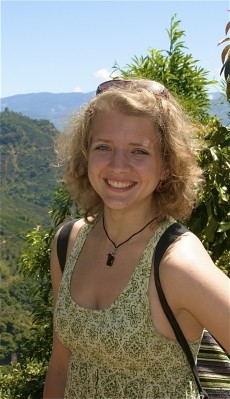Carli Pentz ’13 and Dr. Matthew Kelley publish in QJEP

Collaborative memory research by Associate Professor of Psychology Matthew Kelley, Carli Pentz ’13, and Matthew Reysen from the University of Mississippi was published in the current issue of the Quarterly Journal of Experimental Psychology.
Over the past six years, students in the Kelley cognition lab have explored a pair of counterintuitive memory phenomena—collaborative inhibition and part-set cuing inhibition—that, while very different on the surface, appear to have a common explanation.
Collaborative inhibition refers to finding that two people remembering together (collaborative group) will not remember as much information as two people remembering alone who then combine their non-redundant recall (nominal group). In contrast, part-set cuing inhibition refers to the finding that hints often hurt memory, especially when those hints are comprised of part of the set of to-be-remembered information (e.g., half of the words on a list).
According to Kelley, “Retrieval strategy disruption may produce both phenomena. When a person is asked to encode information into memory, she will develop her own idiosyncratic organizational and retrieval strategy. When she is asked to remember along with another person, the two strategies are not likely to be congruent, so they will disrupt one another and performance will suffer. Similarly, if an experimenter gives her part-set cues at test, these cues are not likely to be consistent with her organizational and retrieval strategies, which will impair performance.”
The present study, based on Pentz’s distinguished thesis, was the first to examine the joint influence of collaboration and part-set cuing on memory. Their results indicated that the detrimental effects of collaboration and part-set cuing are independent of one another. Collaboration disrupts different strategies than part-set cuing, and vice-versa. Further, they showed that one can produce part-set cuing facilitation (where cues enhance memory) while, at the same time, producing collaborative inhibition. These findings have important theoretical implications.
This is Pentz’s second publication from the Kelley Lab; she co-authored a collaborative inhibition paper with Kelley, Kayla Ahlstrand ’12, and Reysen in 2012.
“Our exploration of collaboration inhibition is rolling on,” Kelley said. “In their respective senior theses, Stephen Bromfield ’14 has explored the influence of collaboration for improvised material and Thomas Estruth ’14 has explored whether collaborative inhibition also occurs in spatial memory.”